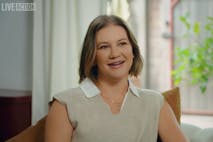
Live Action's Top 10 Highlights of 2025: Engaging the culture with pro-life truth
Nancy Flanders
·
Politics
Nancy Flanders
·
Human Interest
Nancy Flanders
·
International
Angeline Tan
·
Human Interest
Isabella Childs
·
Analysis
Nancy Flanders
·
400k+ Readers Strong & Growing
News & Commentary from
A Pro-Life Perspective
As the news arm of Live Action, we educate the public and advocate for preborn rights by providing timely, accurate, and compelling news and stories about the pro-life movement.

Politics
Nancy Flanders
·
Human Interest
Nancy Flanders
·
International
Angeline Tan
·
Human Interest
Isabella Childs
·
Analysis
Nancy Flanders
·
Human Interest
Bridget Sielicki
·
Newsbreak
Angeline Tan
·
Politics
Nancy Flanders
·
Human Interest
Nancy Flanders
·
Human Interest
Melina Nicole
·
Issues
Nancy Flanders
·
Politics
Nancy Flanders
·